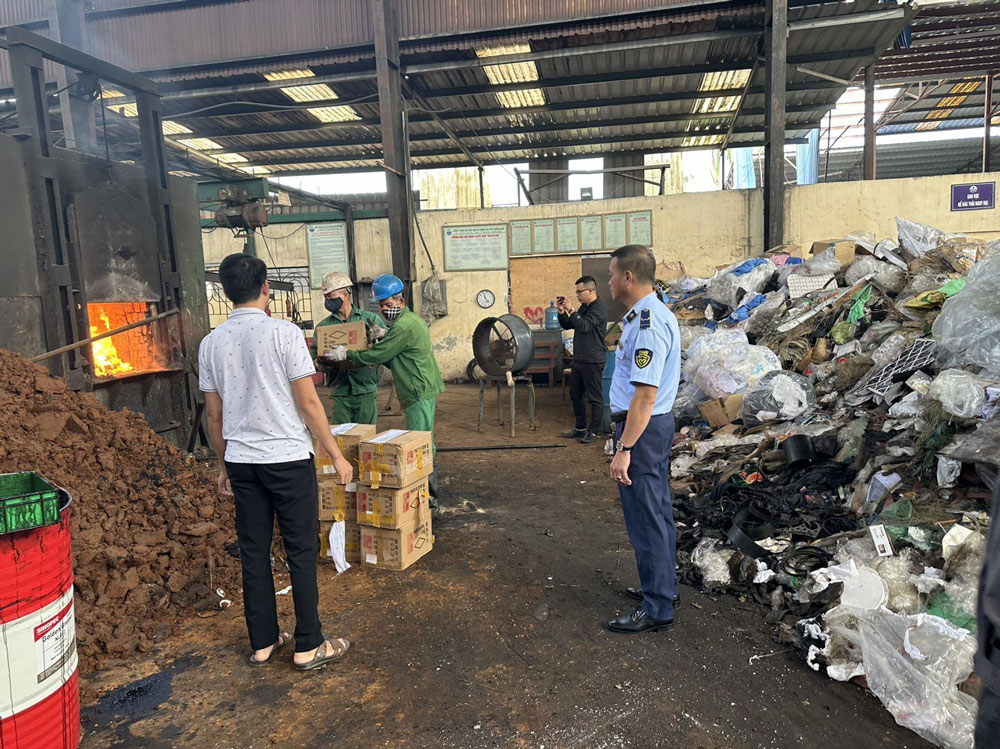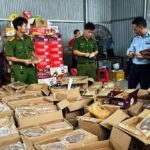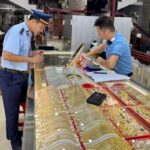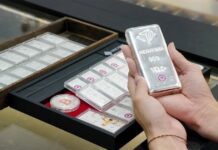From November 1st, 2024, to March 1st, 2025, the General Department of Market Management (GDMM) under the Ministry of Industry and Trade will be conducting an intensive campaign against smuggling, commercial fraud, and counterfeit goods during the final months of 2024 and in the lead-up to, during, and after the Lunar New Year of 2025 (the Year of the Snake).
Tightening Control Over Online Trade
Mr. Tran Huu Linh, Head of the GDMM, has instructed market management forces to focus on monitoring online business activities on e-commerce platforms, websites, and social media networks such as Facebook and TikTok. The emphasis will be on inspecting product quality and ensuring compliance with national technical regulations and standards, as well as mandatory product quality and food safety standards.
In early November 2024, market management forces in Hai Duong province conducted surprise inspections of two business households, seizing and handling nearly 14,000 cosmetic and beauty accessory products of unknown origin. Notably, Facebook, TikTok, and Zalo have been utilized by these households as platforms to post images, articles, and clips advertising and selling counterfeit goods.
According to the Hai Duong Market Management Department, the use of social media networks by these entities has created significant challenges for authorities in terms of tracing and locating their business premises and warehouses. This information is crucial for effective management, inspection, and handling of violations.

Authorities overseeing the destruction of counterfeit goods
The modus operandi of these counterfeit goods traders involves setting up warehouses near border gates and establishing live streaming points to receive orders. They then dispatch goods from multiple locations across the country. Prohibited goods are mixed with other items in packages, and transactions are made using phone numbers that do not belong to the actual owners. Goods are delivered to customers through delivery and express delivery services, making detection difficult.
Leaving No Room for Counterfeit Goods
The GDMM has instructed market management forces to closely coordinate with other functional forces, including the police, customs, border guards, and specialized inspection forces, to regularly inspect and monitor the circulation of goods, especially those transported from border gates and international airports to the domestic market. Additionally, market management forces in provinces and cities are requested to collaborate with relevant forces to strengthen information gathering, verification, inspection, and strict handling of organizations and individuals violating the law in e-commerce activities.
Regarding the issue of unregistered cross-border e-commerce platforms like Temu and Shein operating in Vietnam, lawyer Truong Thanh Duc, Director of ANVI Law Firm, stated that registration is just the first step. More importantly, the legal system needs to monitor and supervise these platforms to prevent tax evasion and ensure product quality. As selling counterfeit goods constitutes fraud, it should be strictly dealt with.
Lawyer Nghiem Quang Vinh, Director of Nghiem Quang Law Firm (Hanoi Bar Association), emphasized that the act of trading counterfeit goods through live streaming and having warehouses on social networks is an organized violation that needs to be strictly handled according to the law. Depending on the circumstances, administrative or even criminal penalties may be considered.
Furthermore, consumers play a crucial role in combating counterfeit goods. By refusing to purchase such items, consumers can help eliminate the market for these illicit products in Vietnam.
Identifying Two “Hotspots”
In Ho Chi Minh City, the situation of smuggling, trading in counterfeit goods, goods of unknown origin, goods infringing intellectual property rights, and commercial fraud remains persistent, especially in certain commodity groups such as pharmaceuticals, food, e-cigarettes, cosmetics, gasoline, refined sugar, gold jewelry, and some essential commodities.
Two notable “hotspots” for the sale of counterfeit and imitation goods of famous brands in Ho Chi Minh City are the Saigon Square Trade Center and Ben Thanh Market, both located in District 1. Most of the stalls selling clothes, shoes, bags, watches, and glasses in these two locations are engaged in the sale of counterfeit and imitation goods. Despite repeated inspections and handling by market management forces, the situation persists.
N.Hai
The Arrest of a Company Director: Unveiling the Truth.
“Le Vu Tung Lam, the dynamic and esteemed Director of LT Investment and Industrial Company Limited, has found himself at the center of legal proceedings. He has been detained and is now under investigation for alleged involvement in ‘Smuggling’. The authorities have taken this step to scrutinize his actions and determine the veracity of the allegations.”


















